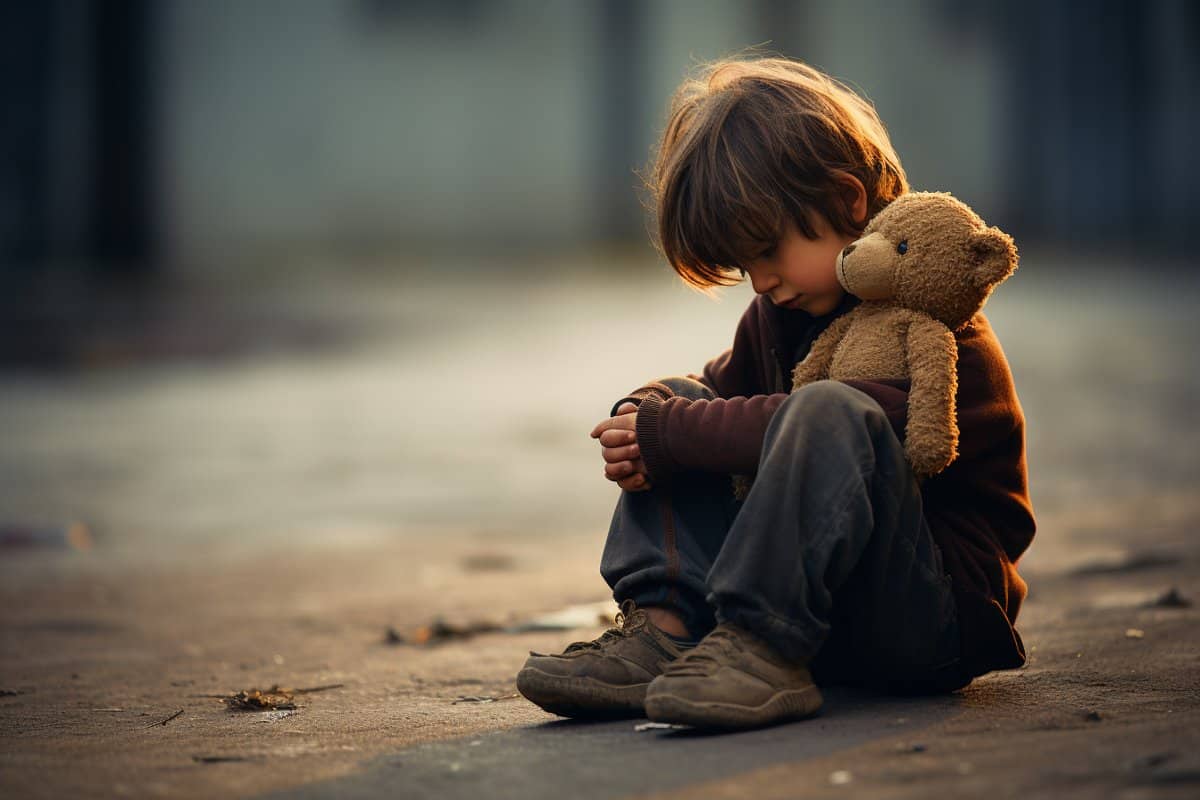Summary: A recent study reveals that individuals who experienced childhood adversity, such as neglect or abuse, faced higher chances of COVID-19 hospitalization or mortality in adulthood.
Analyzing over 151,200 adults from the UK Biobank, researchers linked increased reports of early life adversity to 12-25% elevated odds of severe COVID-19 outcomes. This connection remained significant even after accounting for other known risk factors.
The findings underscore the far-reaching impacts of early-life trauma on health outcomes, even decades later.
Key Facts:
- The study analyzed data from over 151,200 adults, finding those with childhood adversity faced 12-25% higher odds of severe COVID-19 outcomes.
- This research is the first to link COVID-19 hospitalization and mortality risks with childhood abuse and neglect.
- The findings suggest that understanding early-life experiences might be crucial in addressing COVID-19 disparities.
Source: University of Pittsburgh
People who endured childhood adversity, like abuse or neglect, were more likely to be hospitalized or die from COVID-19 in adulthood, a new University of Pittsburgh study found. Specifically, higher self-reported childhood adversity was linked to 12-25% higher odds of COVID-19 hospitalization and mortality.
While age, sex, ethnicity, health, and sociodemographic factors have been related to such outcomes throughout the pandemic, this was the first study finding a link between these COVID-19 outcomes and childhood neglect and abuse.

Using the UK Biobank in Great Britain, a team — lead by Jamie L. Hanson, a researcher in Pitt’s Learning Research & Development Center and an assistant professor in psychology in the Kenneth P. Dietrich School of Arts & Sciences — took a deep dive into information provided by more than 151,200 adults of middle age or older.
What the numbers showed was that people who reported “adversity” such as abuse or neglect while children were more likely to die or be hospitalized from COVID-19.
The study was published Nov. 1 in the Journal of Epidemiology and Community Health, the British Medical Association’s journal focusing on different social determinants of health.
“These findings highlight how trauma early in life can have long-lasting impacts on health decades later,” Hanson said.
“We know that COVID-19 is related to excessive hospitalization and death in the UK and in the United States. And there’s emerging research finding that facing adversity, abuse or neglect, early in life, could have sizeable effects on physical health.
“But no one had tried to connect these two trends. Knowing a bit more about someone’s early development could be important to help reduce disparities in COVID-19.”
While Hanson and his co-authors maintain that their work opens the door for more pinpointed and global studies, they believe their findings show there could be a need for policies and interventions to lessen COVID-19 impacts in people who have suffered from such childhood adversity.
“We may need targeted interventions for individuals and certain communities affected by childhood adversity to lessen the pandemic’s lasting impact,” Hanson said.
“Adversity may lead to risk for negative outcomes and the potential to have long-COVID. We need to complete more work to understand how adversity gets ‘under the skin’ and increases vulnerability to poor health after COVID-19 infections.”
In other words, as the co-authors wrote, not just COVID-19 but such findings could be used “to limit adversity-related negative outcomes with future pandemics.”
About this child trauma and COVID-19 research news
Author: Nicholas France
Source: University of Pittsburgh
Contact: Nicholas France – University of Pittsburgh
Image: The image is credited to Neuroscience News
Original Research: Open access.
“Childhood adversity and COVID-19 outcomes in the UK Biobank” by Jamie L. Hanson et al. Journal of Epidemiology & Community Health
Abstract
Childhood adversity and COVID-19 outcomes in the UK Biobank
Objectives
This study aims to investigate the association between childhood adversity and COVID-19-related hospitalisation and COVID-19-related mortality in the UK Biobank.
Design
Cohort study.
Setting
UK.
Participants
151 200 participants in the UK Biobank cohort who had completed the Childhood Trauma Screen were alive at the start of the COVID-19 pandemic (January 2020) and were still active in the UK Biobank when hospitalisation and mortality data were most recently updated (November 2021).
Main outcome measures
COVID-19-related hospitalisation and COVID-19-related mortality.
Results
Higher self-reports of childhood adversity were related to greater likelihood of COVID-19-related hospitalisation in all statistical models. In models adjusted for age, ethnicity and sex, childhood adversity was associated with an odds ratio (OR) of 1.227 of hospitalisation (95% CI 1.153 to 1.306, childhood adversity z=6.49, p<0.005) and an OR of 1.25 of a COVID-19-related death (95% CI 1.11 to 1.424, childhood adversity z=3.5, p<0.005). Adjustment for potential confounds attenuated these associations, although associations remained statistically significant.
Conclusions
Childhood adversity was significantly associated with COVID-19-related hospitalisation and COVID-19-related mortality after adjusting for sociodemographic and health confounders. Further research is needed to clarify the biological and psychosocial processes







